Home>diy>Building & Construction>How To Start A Home Building Company


Building & Construction
How To Start A Home Building Company
Modified: January 19, 2024
Learn the step-by-step process of starting your own home building company in the construction industry. Gain valuable insights and tips for success.
(Many of the links in this article redirect to a specific reviewed product. Your purchase of these products through affiliate links helps to generate commission for Storables.com, at no extra cost. Learn more)
Introduction
Welcome to the world of home building, a dynamic and lucrative industry that offers the opportunity to create beautiful structures where memories will be made. Starting a home building company is both a challenging and rewarding venture that requires careful planning, expertise, and a solid strategy. This article will guide you through the essential steps you need to take to start your own successful home building company.
Building a home is a complex process that involves numerous stakeholders, intricate designs, and the execution of various construction tasks. Whether you are a seasoned professional or someone passionate about construction, starting a home building company demands a comprehensive understanding of the industry.
Before diving into the practical steps required to establish your business, it is crucial to develop a strong foundation of knowledge about the construction industry as a whole. Familiarize yourself with current trends, advancements in technology, building codes, safety regulations, and environmental considerations. This understanding will allow you to make well-informed decisions and ensure the success of your company.
Additionally, conducting thorough market research will help determine the viability and potential demand for your services in your target area. Analyze the local housing market, competition, customer preferences, and pricing strategies to identify gaps and opportunities. This information will be invaluable as you develop your business plan and marketing strategy.
Starting a home building company requires careful consideration of legal and financial aspects. It is important to consult with professionals such as lawyers and accountants to ensure compliance with all necessary regulations and to set up the appropriate legal structure for your business. They can also advise you on obtaining the necessary licenses and permits to operate legally.
As you embark on this exciting journey of starting your own home building company, be prepared for the challenges and rewards that lie ahead. With meticulous planning, attention to detail, and a commitment to exceptional craftsmanship, you can establish a reputable and successful home building company that will leave a lasting legacy in the construction industry.
Key Takeaways:
- Building a successful home building company requires thorough research, strategic planning, legal compliance, and a strong focus on reputation building. Prioritizing quality work, customer satisfaction, and professionalism is essential for long-term success.
- From securing financing to establishing supply chains and implementing effective project management, every step in starting a home building company contributes to its overall success. Embracing new opportunities, building strong relationships, and prioritizing craftsmanship are key to thriving in the construction industry.
Read more: How To Start Up A Landscaping Company
Step 1: Research and Planning
The first step in starting a home building company is conducting thorough research and planning. This stage is crucial for laying the foundation of your business and ensuring its long-term success. Here are some essential aspects to consider:
1. Understanding the Market: Conduct market research to identify the demand for home building services in your target area. Study the local housing market, analyze trends, and identify potential gaps or niches that you can focus on. Understanding the market dynamics will help you position your company effectively.
2. Defining Your Target Audience: Clearly define your target audience, including demographics and specific customer preferences. This will enable you to tailor your services and marketing strategies to meet their needs effectively.
3. Competition Analysis: Study your competition to analyze their strengths, weaknesses, and unique selling points. This will help you identify ways to differentiate your company and develop a competitive advantage.
4. Creating a Business Plan: Develop a comprehensive business plan that outlines your company’s goals, target market, financial projections, and marketing strategies. A well-crafted business plan will serve as a roadmap for your company’s growth and help secure financing.
5. Financial Planning: Determine the financial resources required to start and sustain your home building company. Calculate your startup costs, including equipment, permits, licenses, insurance, and initial staffing. Create a budget and identify potential sources of funding, such as loans or investors.
6. Establishing Partnerships: Identify strategic partnerships with suppliers, subcontractors, and other professionals in the construction industry. Building relationships with reliable and reputable partners will ensure a smooth supply chain and enhance your company’s credibility.
7. Building a Team: Determine the key roles and responsibilities within your company and start assembling a team of skilled professionals. Hire experts in areas such as project management, architecture, engineering, and construction to ensure the successful execution of your projects.
8. Develop Safety Protocols: Prioritize safety by developing and implementing comprehensive safety protocols and training programs. Ensure that your employees and subcontractors adhere to strict safety guidelines to prevent accidents and maintain a positive reputation in the industry.
By thoroughly researching and planning, you will be well-equipped to navigate the competitive landscape of the home building industry. This step is essential for laying a solid foundation and setting your company up for success.
Step 2: Formation and Legalities
Once you have completed the research and planning phase, it’s time to focus on the formation and legal aspects of your home building company. Properly setting up your business and ensuring compliance with all necessary regulations are crucial for its long-term success. Here are the key steps to consider:
1. Choose a Legal Structure: Selecting the right legal structure for your company is essential. Common options include sole proprietorship, partnership, limited liability company (LLC), or corporation. Each structure has its own advantages and disadvantages, so it’s important to consult with a lawyer to determine which is best for your specific needs.
2. Register Your Business: Register your home building company with the appropriate government agencies and obtain the necessary licenses and permits. This includes registering for a business name, tax identification number, and any other local permits required in your area.
3. Obtain Insurance Coverage: Protect your business by obtaining the necessary insurance coverage. General liability insurance and workers’ compensation insurance are typically necessary to safeguard your company and employees in case of accidents or injuries.
4. Comply with Building Codes and Regulations: Familiarize yourself with local building codes and regulations in your area. Ensure that your construction projects adhere to these standards to avoid legal issues and potential penalties.
5. Create Contracts and Agreements: Work with a lawyer to create clear and comprehensive contracts and agreements for your clients, subcontractors, and suppliers. These legal documents will outline the terms and conditions of your partnerships, ensuring that all parties are aware of their rights and responsibilities.
6. Protect Intellectual Property: If you have unique designs, logos, or trademarks associated with your home building company, consider seeking intellectual property protection. This can prevent others from using your intellectual property without your permission.
7. Compliance with Employment Laws: Ensure that you are in compliance with all employment laws, including wage and hour regulations, workplace safety requirements, and employee rights. Implement policies and procedures that address these areas to protect both your employees and your company.
8. Consult with Professionals: Throughout the formation and legal process, it is crucial to consult with professionals such as lawyers, accountants, and insurance agents who specialize in the construction industry. They can provide guidance and ensure that you are fulfilling all legal requirements.
By taking care of the formation and legalities of your home building company, you are setting a strong and compliant foundation for your business. It’s important to prioritize these steps to ensure the long-term success and credibility of your company.
Step 3: Business Plan Development
A well-developed business plan serves as a roadmap for your home building company. It outlines your goals, strategies, and financial projections, providing a clear vision for your company’s growth and success. Here are the key components to consider when developing your business plan:
1. Executive Summary: This section provides a concise overview of your company, including its mission, vision, and key objectives. It highlights the unique selling points of your home building services and showcases your competitive advantage.
2. Company Description: Describe your home building company in detail, including its legal structure, location, and history. Outline your company’s values, target market, and positioning within the industry.
3. Market Analysis: Conduct a comprehensive analysis of the market, including the demand for home building services in your target area, customer preferences, and key competitors. This analysis will help you identify opportunities and develop effective marketing strategies.
4. Services Offered: Clearly outline the types of home building services your company will offer. Specify the size and style of homes you will specialize in, as well as any unique features or customization options that set your services apart.
5. Sales and Marketing Strategies: Develop a strategic plan for promoting and selling your home building services. Specify your target audience, pricing strategies, advertising channels, and customer acquisition strategies. Consider incorporating digital marketing techniques to reach a wider audience.
6. Operations and Management: Explain how your home building company will be structured and managed. Identify key personnel, including their roles and responsibilities. Also, outline your project management processes, quality control measures, and technology solutions to ensure efficient operations.
7. Financial Projections: Present realistic financial forecasts for your home building company. Include projected revenue, expenses, and cash flow statements for the first few years of operation. This will help you assess the financial viability of your business and secure funding if necessary.
8. Risk Analysis: Identify potential risks and challenges your home building company may face and develop strategies to mitigate them. These risks may include economic downturns, material shortages, permit delays, or unexpected project complications.
9. Exit Strategy: While it may seem premature, it’s important to consider your exit strategy. Whether you plan to sell the business, pass it on to a family member, or retire, having a clear exit strategy will help you make informed decisions and plan for the future.
Developing a comprehensive business plan will not only guide your company’s growth but also serve as a valuable tool when seeking funding from investors or financial institutions. Continuously revisit and update your business plan as your company evolves to ensure its relevance and alignment with your goals.
Step 4: Financing and Funding
Securing adequate financing and funding is essential for starting and growing a successful home building company. While the construction industry can require significant upfront investment, there are various options available to finance your business. Here are some key considerations for financing and funding:
1. Self-Funding: If you have personal savings or assets, using your own funds can be a straightforward way to finance your home building company. This approach allows you to have full control over the business and avoids the need to take on debt or give up equity.
2. Small Business Loans: Explore opportunities for small business loans through banks or other financial institutions. Prepare a strong business plan, financial projections, and documentation to support your loan application. Collateral may be required, so ensure you have assets to offer as security.
3. Investors: Consider seeking investment from individuals or firms interested in partnering with your home building company. This may involve giving up equity in your business, but it can provide you with the necessary capital to grow and expand your operations.
4. Crowdfunding: Utilize crowdfunding platforms to raise funds for your home building company. Pitch your business idea to a broad audience and offer rewards or incentives for various contribution levels. This method can help validate your concept and generate early customer interest.
5. Grants and Incentives: Research and apply for grants or incentives offered by government agencies or industry organizations. These programs often provide funding specifically for small businesses or those involved in specific industries, such as building construction.
6. Supplier Financing: Work with suppliers who offer financing options, such as extended payment terms or equipment leasing. This can help alleviate immediate cash flow pressures and allow you to invest in necessary equipment and materials.
7. Joint Ventures: Consider forming partnerships or joint ventures with other companies in the construction industry. Pooling resources and expertise can help reduce costs and provide access to larger projects that may require a higher level of financial stability.
8. Cash Flow Management: Effectively managing your cash flow is essential for the financial health of your home building company. Monitor your inflows and outflows closely, and negotiate payment terms with clients and suppliers to ensure consistent cash flow throughout projects.
It’s important to carefully evaluate your financing options and choose the approach that aligns best with your business objectives and growth plans. Ensure that you have a realistic financial plan and projections to demonstrate the potential profitability and viability of your home building company to potential lenders or investors.
Read more: How To Start A Construction Company In NYC
Step 5: Obtaining Licenses and Permits
Obtaining the necessary licenses and permits is a critical step in starting a home building company. Compliance with legal requirements and regulations ensures that your business operates legally, protecting both you and your clients. Here are the key licenses and permits to consider:
1. Contractor’s License: Depending on your location, you may need to obtain a contractor’s license to legally operate a home building company. The requirements for obtaining a license vary by state and may include passing an exam, providing proof of experience, and demonstrating financial responsibility.
2. Building Permits: Before starting any construction project, you must obtain the necessary building permits from the local government. Building permits ensure that your projects comply with building codes, safety regulations, and zoning requirements. Failure to obtain permits can result in project delays, fines, and legal complications.
3. Trade Licensing: In addition to a contractor’s license, specific trade licenses may be required for certain construction activities. This includes licenses for plumbing, electrical work, HVAC systems, and other specialized trades. Verify the licensing requirements in your area and ensure that your team members possess the necessary certifications.
4. Environmental Permits: If your home building projects involve activities that impact the environment, such as land clearing or wastewater management, you may need to secure environmental permits. These permits ensure that your projects comply with environmental regulations and minimize any negative ecological impact.
5. Occupational Health and Safety Certifications: Construction sites can be hazardous, so ensuring the safety of your workers and complying with occupational health and safety regulations is essential. Obtain the necessary certifications and implement safety protocols to protect your employees and maintain a positive reputation in the industry.
6. Insurance: While not a license or permit, obtaining appropriate insurance coverage is crucial for protecting your home building company. General liability insurance, workers’ compensation insurance, and builder’s risk insurance are among the key policies you should consider to safeguard your business and mitigate potential risks.
7. Local Business Permits: Check with your local municipality or county for any additional business permits or licenses required. This can include a business tax license, zoning permits, signage permits, or home occupation permits if you plan to operate your business from a residential property.
8. Ongoing Compliance: Understand that obtaining licenses and permits is not a one-time task. You will need to renew certain licenses annually and remain compliant with changing regulations. Stay informed about updates in building codes, safety standards, and any modifications to permit requirements in your area.
It is important to research and understand the licensing and permit requirements in your specific jurisdiction to ensure your home building company operates legally. Failing to obtain the necessary licenses and permits can result in significant legal and financial consequences. Compliance not only protects your business but also instills trust in your clients and enhances your professional reputation.
Tip: Research the local market to understand the demand for new homes, and identify the target demographic and their preferences. This will help you tailor your services and marketing strategies to attract potential clients.
Step 6: Hiring and Training Employees
Building a successful home building company requires a skilled and dedicated team of professionals. Hiring and training employees who are knowledgeable, experienced, and aligned with your company’s values is crucial for the successful execution of your projects. Here are the key steps to consider:
1. Determine Staffing Needs: Assess your workload and determine the number and types of positions you need to fill. Consider roles such as project managers, architects, engineers, construction workers, and administrative staff. Identify the skills and qualifications required for each position.
2. Recruitment and Hiring: Develop effective recruitment strategies to attract qualified candidates. Advertise job openings through online job boards, industry-specific websites, and social media platforms. Conduct thorough interviews and background checks to ensure you hire the right individuals for the job.
3. Competency Evaluation: Assess the skills and experience of potential hires through practical tests or simulations. This can help determine their proficiency in tasks related to home building, such as reading blueprints, construction techniques, or project management.
4. Training and Development: Provide comprehensive training programs to ensure your employees possess the necessary skills and knowledge to perform their jobs effectively. This can include on-site training, workshops, mentoring programs, or external training courses. Invest in their professional development to enhance their expertise and job satisfaction.
5. Safety Training: Prioritize safety by providing thorough safety training to all employees. This includes educating them on the proper use of personal protective equipment, safe construction practices, and emergency procedures. Regularly review and reinforce safety protocols to maintain a safe working environment.
6. Team Building and Communication: Foster a positive and collaborative work environment through team building activities and effective communication channels. Encourage open dialogue, feedback, and idea-sharing among your employees. This promotes a sense of camaraderie and teamwork, leading to higher productivity and better project outcomes.
7. Employee Retention Programs: Implement strategies to retain top talent, such as offering competitive wages, providing opportunities for career growth, and recognizing and rewarding exceptional performance. Happy and engaged employees are more likely to stay with your company long-term, reducing turnover and maintaining continuity in your projects.
8. Continuous Learning: Encourage employees to engage in continuous learning and stay updated with industry trends, new technologies, and best practices. Provide resources and support for professional development, such as attending conferences or seminars. This will keep your team at the forefront of the industry.
Building a skilled and motivated team is essential for the success of your home building company. Investing in the hiring and training process not only ensures the quality of your projects but also contributes to a positive work culture and sets the foundation for long-term growth and success.
Step 7: Establishing Supply Chains
An efficient and reliable supply chain is essential for the smooth operation of your home building company. Establishing strong relationships with suppliers and subcontractors ensures that you have access to high-quality materials and services, enabling you to complete projects on time and within budget. Here are the key steps to consider when establishing your supply chains:
1. Supplier Research: Begin by researching and identifying potential suppliers who offer the materials and products you require for your home building projects. Look for suppliers who have a reputation for delivering quality materials, competitive pricing, and excellent customer service.
2. Request for Proposals (RFPs): Send out RFPs to selected suppliers, detailing your specific requirements and expectations. This allows you to compare proposals and negotiate favorable terms, including price, delivery schedules, and warranties.
3. Supplier Selection: Evaluate the proposals received and select suppliers who meet your criteria in terms of quality, reliability, affordability, and responsiveness. Consider factors such as their track record, past client reviews, and ability to meet project deadlines.
4. Establish Contracts: Once you have selected your suppliers, establish formal contracts that define the terms and conditions of your partnership. Include details such as pricing, payment terms, delivery schedules, and quality standards to ensure a clear understanding between both parties.
5. Continuous Communication: Maintain open lines of communication with your suppliers to foster strong relationships and align expectations. Regularly communicate your project requirements, changes in schedule, or other important information to ensure a smooth flow of materials and services.
6. Supplier Performance Evaluation: Regularly assess the performance of your suppliers based on factors such as product quality, on-time delivery, and responsiveness. Address any issues or concerns promptly to maintain a high standard of service and quality in your projects.
7. Building Backup Suppliers: It’s important to have backup suppliers in case your primary suppliers encounter issues or fail to meet your requirements. Maintain a list of alternative suppliers who can step in if needed to avoid project delays or disruptions.
8. Subcontractor Relationships: In addition to suppliers, establishing strong relationships with reliable subcontractors is crucial for the success of your projects. Research and select subcontractors who have a proven track record, relevant expertise, and a commitment to quality workmanship.
By carefully establishing your supply chains, you can ensure a steady and reliable flow of materials and services for your home building projects. Strong supplier and subcontractor relationships contribute to the overall efficiency, quality, and success of your projects, giving you a competitive edge in the industry.
Step 8: Marketing and Advertising Strategies
Effective marketing and advertising strategies play a crucial role in promoting your home building company and attracting potential clients. By implementing targeted marketing initiatives, you can showcase your expertise, build brand awareness, and generate leads. Here are the key steps to consider when developing your marketing and advertising strategies:
1. Define Your Brand: Establish a strong and compelling brand identity that reflects your company’s values, mission, and unique selling points. Define your target market and develop a brand message that resonates with your ideal clients.
2. Build an Online Presence: Create a professional website that showcases your portfolio, services, and testimonials from satisfied clients. Optimize your website for search engines to improve visibility in online searches. Utilize social media platforms to engage with your audience, share industry insights, and promote your projects.
3. Content Marketing: Develop and share informative and engaging content related to home building. Create blog posts, videos, and infographics that highlight your expertise, offer valuable insights, and address common client concerns. This positions your company as a trusted authority in the industry.
4. Photography and Visuals: High-quality visuals are crucial in showcasing the craftsmanship and attention to detail in your home building projects. Invest in professional photography and videography to capture stunning images that represent your work. These visuals can be used on your website, social media, and marketing materials.
5. Online Reviews and Testimonials: Encourage satisfied clients to leave positive reviews and testimonials on your website and relevant online platforms. Positive reviews and testimonials act as social proof and help build trust with potential clients.
6. Networking and Referrals: Attend industry events, join professional organizations, and actively participate in local community activities to expand your network. Cultivate relationships with other professionals in the construction industry, such as architects, interior designers, and real estate agents, who may refer clients to your business.
7. Targeted Advertising: Utilize online advertising platforms, such as Google Ads or social media ads, to reach your target audience. Identify keywords and demographics that align with your ideal clients to ensure your ads are shown to the right people at the right time.
8. Showcasing Projects and Awards: Highlight your completed home building projects and any industry awards or recognitions you have received. Create case studies and display them on your website and marketing materials to demonstrate your expertise and capabilities.
9. Customer Relationship Management (CRM): Implement a CRM system to effectively manage client interactions and maintain relationships. This allows you to track project progress, follow up with prospects, and foster long-term client loyalty.
10. Monitor and Adapt: Continuously monitor the success of your marketing initiatives and adapt your strategies as needed. Analyze website analytics, lead conversion rates, and client feedback to identify areas for improvement and optimize your marketing efforts.
By implementing a comprehensive marketing and advertising strategy, you can effectively promote your home building company, differentiate yourself from competitors, and attract potential clients. Consistency, creativity, and a targeted approach will help you to establish a strong brand presence and generate sustainable growth for your business.
Step 9: Project Management and Construction Processes
Effective project management and efficient construction processes are essential for the successful completion of home building projects. With proper planning, organization, and execution, you can ensure that your projects are delivered on time, within budget, and with exceptional quality. Here are the key steps to consider in project management and construction processes:
1. Detailed Project Planning: Begin each project by creating a detailed plan that outlines the scope, timeline, and budget. Break down the project into smaller tasks and assign responsibilities to your team members. Set clear goals and milestones to track progress throughout the project.
2. Clear Communication Channels: Foster open and transparent communication among all project stakeholders, including your team, clients, subcontractors, and suppliers. Establish regular meetings to discuss project updates, address concerns, and ensure everyone is aligned with project objectives.
3. Efficient Resource Allocation: Allocate resources, including equipment, materials, and labor, efficiently to optimize productivity and minimize waste. Regularly monitor resource usage and adjust as necessary to avoid delays or cost overruns.
4. Risk Management: Identify potential risks and develop strategies to mitigate them. This includes having contingency plans in place for unforeseen challenges, such as adverse weather conditions, material shortages, or subcontractor availability. Regularly assess risks and implement preventive measures to minimize their impact on projects.
5. Quality Control and Assurance: Establish strict quality control measures to ensure that each aspect of the construction process meets or exceeds industry standards. Conduct regular inspections and supervise work to maintain high-quality craftsmanship and minimize rework.
6. Document Management: Keep detailed and organized records of project documentation, including contracts, permits, change orders, and project schedules. This ensures transparency, clarity, and accountability throughout the project’s lifecycle.
7. Project Reporting: Regularly provide project updates and reports to your clients, including progress milestones, budget status, and any changes or deviations from the original plan. This promotes transparency and maintains trust between your company and your clients.
8. Controlling Costs: Continuously monitor project expenses and control costs to ensure that you stay within budget. Regularly review your financial reports and make adjustments to avoid overspending and maintain profitability.
9. Safety and Compliance: Prioritize the safety of your team and ensure compliance with all relevant health and safety regulations and building codes. Implement regular safety training and conduct safety inspections to mitigate risks and maintain a safe working environment.
10. Post-Project Evaluation: Conduct a thorough evaluation at the completion of each project to identify lessons learned, areas for improvement, and client satisfaction. Use this feedback to continuously improve your processes and enhance customer satisfaction.
By implementing effective project management techniques and efficient construction processes, you can ensure the successful delivery of home building projects. Attention to detail, strong communication, and a commitment to quality will help you build a reputation for excellence within the industry.
Step 10: Building a Strong Reputation
Building a strong reputation is quintessential for the long-term success of your home building company. A positive reputation not only attracts new clients but also garners trust and repeat business from satisfied customers. Here are the key steps to consider when building a strong reputation:
1. Deliver High-Quality Work: Consistently deliver top-notch workmanship and attention to detail in every project you undertake. Strive for excellence and ensure that each home you build exceeds client expectations. This commitment to quality will leave a lasting impression and contribute to a positive reputation in the industry.
2. Customer Satisfaction: Prioritize customer satisfaction and go the extra mile to exceed their expectations. Communicate openly, listen to their needs, and address any concerns promptly. Happy and satisfied customers will become your strongest advocates and provide positive referrals to others.
3. Build Strong Relationships: Cultivate strong relationships with clients, subcontractors, suppliers, and industry professionals. Encourage open communication, honesty, and transparency in all interactions. Nurture these relationships to generate repeat business, referrals, and collaborative opportunities.
4. Professionalism and Integrity: Conduct your business with the utmost professionalism, integrity, and ethical standards. Maintain open lines of communication, honor agreements, and follow through on commitments. Building a reputation as a trustworthy and reliable home builder will differentiate you from the competition.
5. Showcase Your Expertise: Demonstrate your expertise and showcase your knowledge through thought leadership in the industry. Write articles, contribute to industry publications, or speak at conferences to establish yourself as an authority in home building. This reinforces your credibility and cultivates a strong reputation as a knowledgeable professional.
6. Establish a Strong Online Presence: Leverage the power of the internet to build and maintain your reputation. Implement a comprehensive online marketing strategy that includes a professional website, active social media presence, and positive online reviews. Respond promptly to online inquiries and address any negative feedback professionally and in a timely manner.
7. Seek Feedback and Continuous Improvement: Actively seek feedback from clients and team members to identify areas for improvement. Take constructive criticism as an opportunity to grow and continuously enhance your processes and procedures. This commitment to improvement will reinforce your reputation as a company that prioritizes excellence.
8. Get Involved in the Community: Engage with your local community by supporting charitable causes, participating in community events, and contributing to local initiatives. This involvement not only showcases your commitment to the community but also builds a positive reputation as a responsible and caring company.
9. Honoring Warranties and Guarantees: Uphold your promises by honoring warranties and guarantees provided to clients. This demonstrates your commitment to customer satisfaction and builds trust in your company’s reputation.
10. Monitor and Manage Online Reputation: Regularly monitor and manage your online reputation through review sites, social media platforms, and industry-specific websites. Respond promptly to any negative reviews or feedback and work towards resolving any issues raised.
Building a strong reputation takes time and consistent effort. Prioritize customer satisfaction, maintain professionalism and integrity, and continuously strive for excellence in your work. A positive reputation will not only attract new clients but also help your home building company thrive in a competitive industry.
Conclusion
Starting a home building company is an exciting and rewarding journey that allows you to turn visions into reality and create beautiful spaces where memories will be made. By following the essential steps outlined in this guide, you can set the foundation for a successful and thriving business in the construction industry.
From conducting thorough research and planning to obtaining the necessary licenses and permits, each step is crucial in establishing a strong and legally compliant company. Building a comprehensive business plan, securing financing, and developing marketing strategies will help you attract clients and differentiate yourself from competitors.
Hiring and training a skilled team, establishing reliable supply chains, and implementing effective project management and construction processes ensure that your projects are executed with precision and efficiency. Building a strong reputation through quality work, customer satisfaction, and professionalism will help you stand out in a crowded marketplace.
Throughout your journey as a home builder, it’s important to remain adaptable, continuously improve your processes, and stay updated with the latest trends and technologies in the industry. Embrace new opportunities, build strong relationships, and never compromise on the quality of your work.
Remember, building a successful home building company takes time and dedication. Be patient, stay committed to your vision, and always prioritize the highest level of craftsmanship and customer satisfaction. With passion, perseverance, and the right knowledge, you can create a reputable and thriving home building company that leaves a lasting impact in the construction industry.
Now, go and embark on this exciting journey of turning dreams into reality through the art of home building!
Frequently Asked Questions about How To Start A Home Building Company
Was this page helpful?
At Storables.com, we guarantee accurate and reliable information. Our content, validated by Expert Board Contributors, is crafted following stringent Editorial Policies. We're committed to providing you with well-researched, expert-backed insights for all your informational needs.
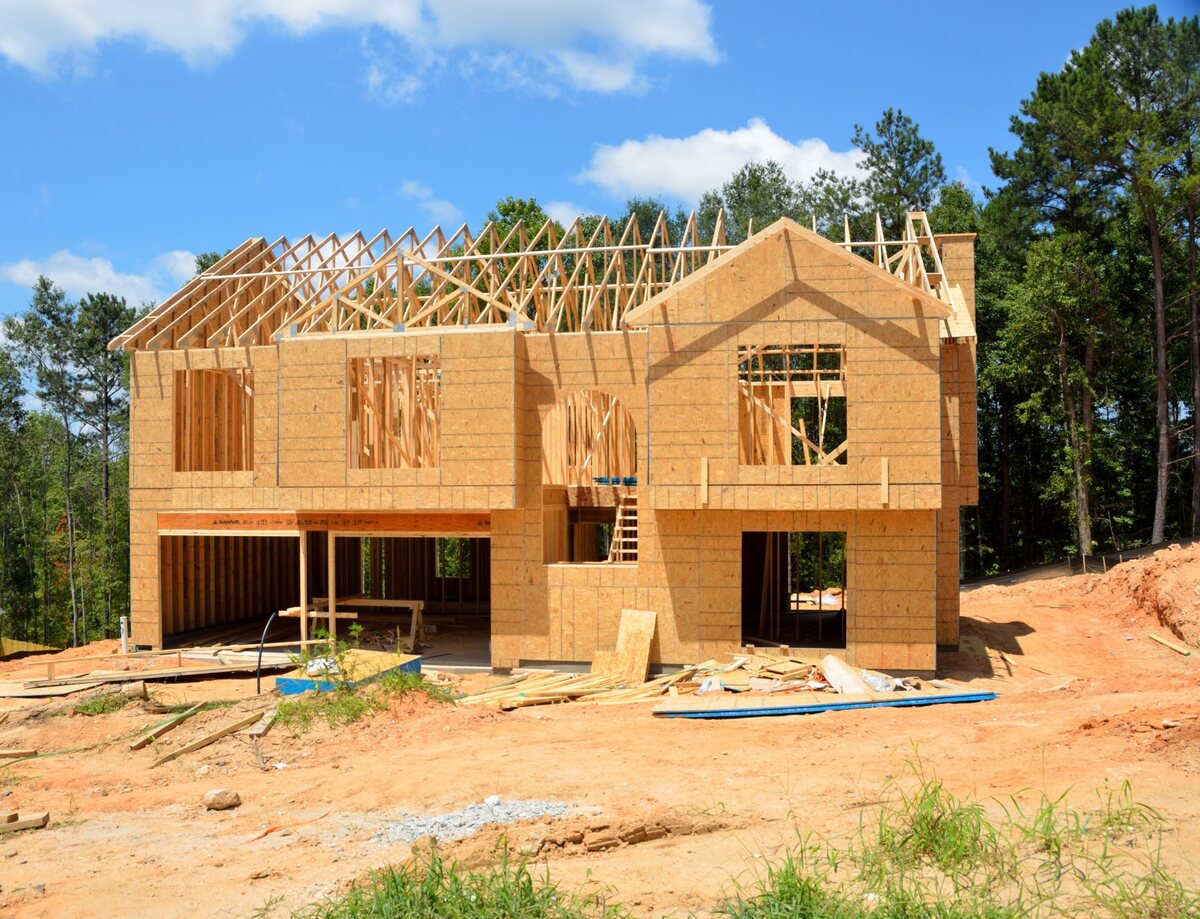


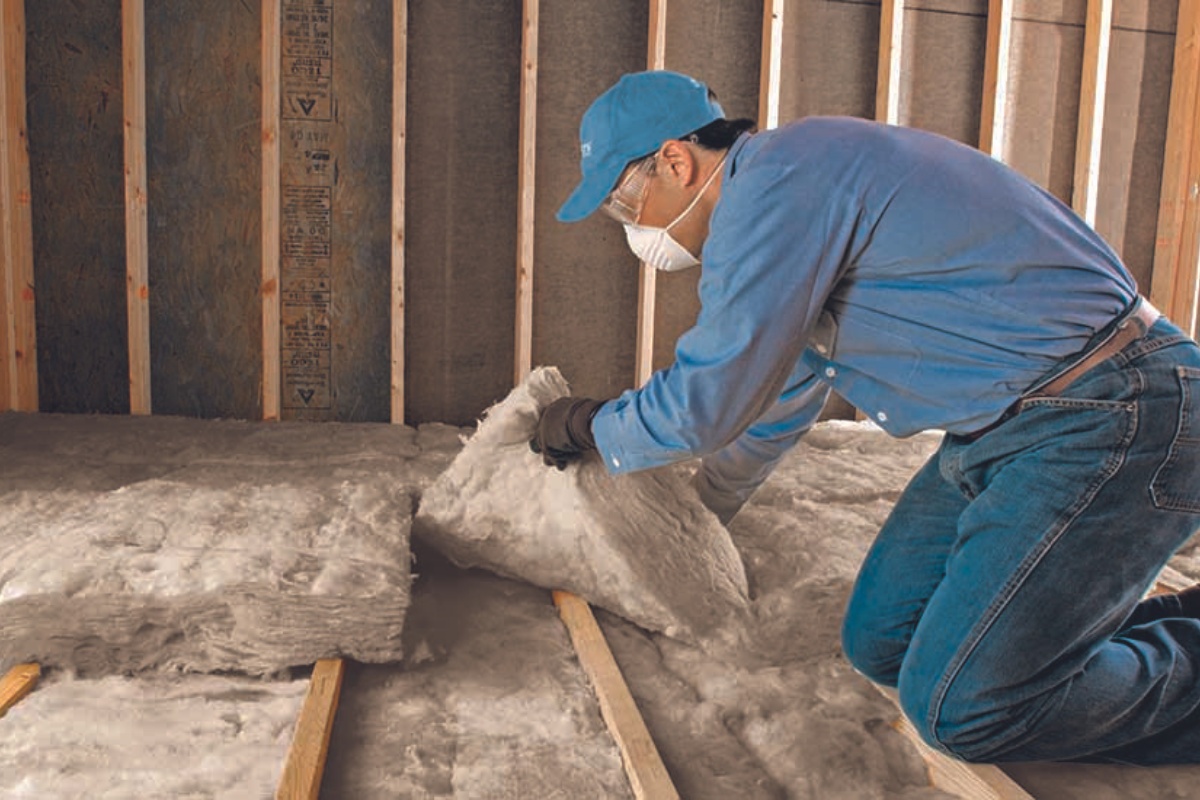
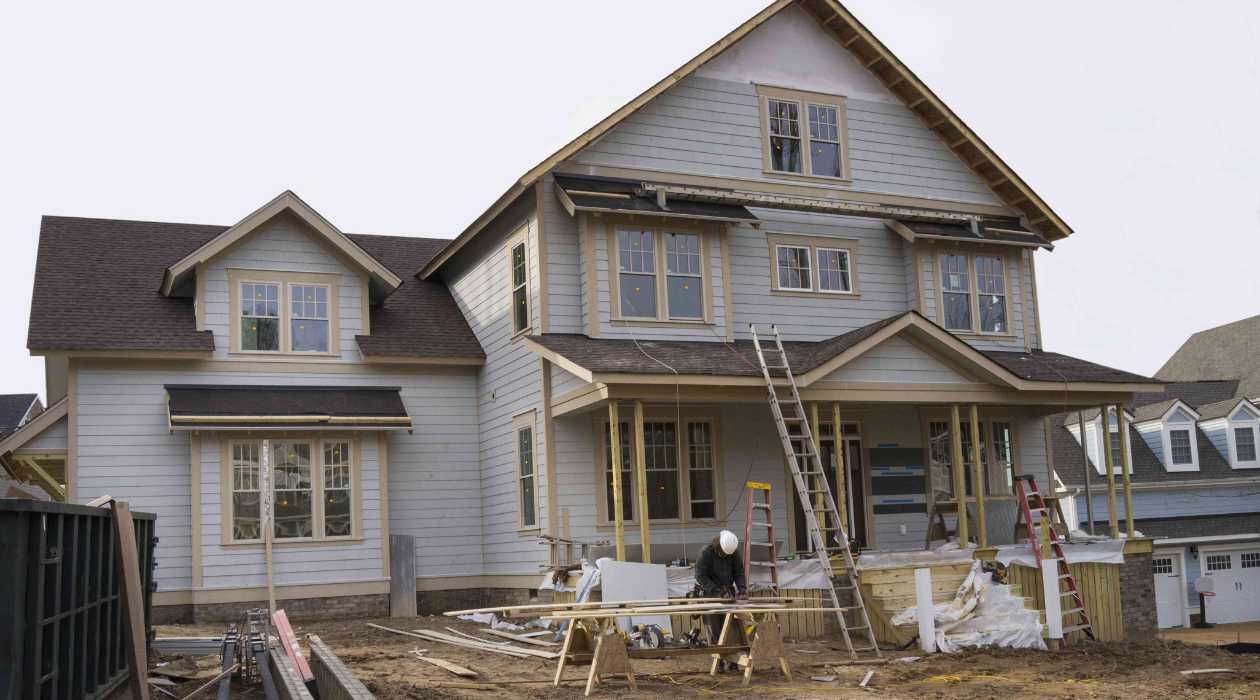


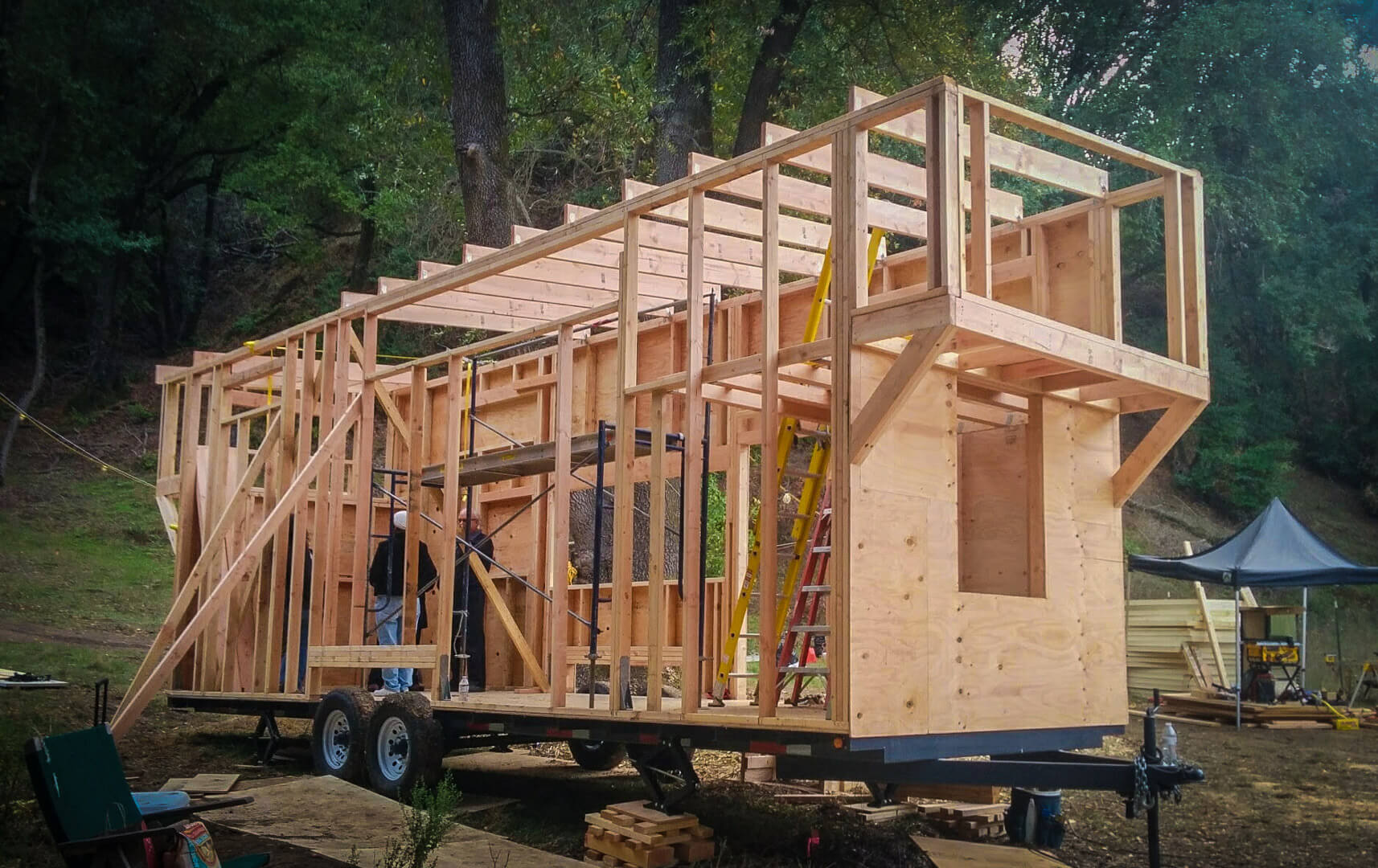
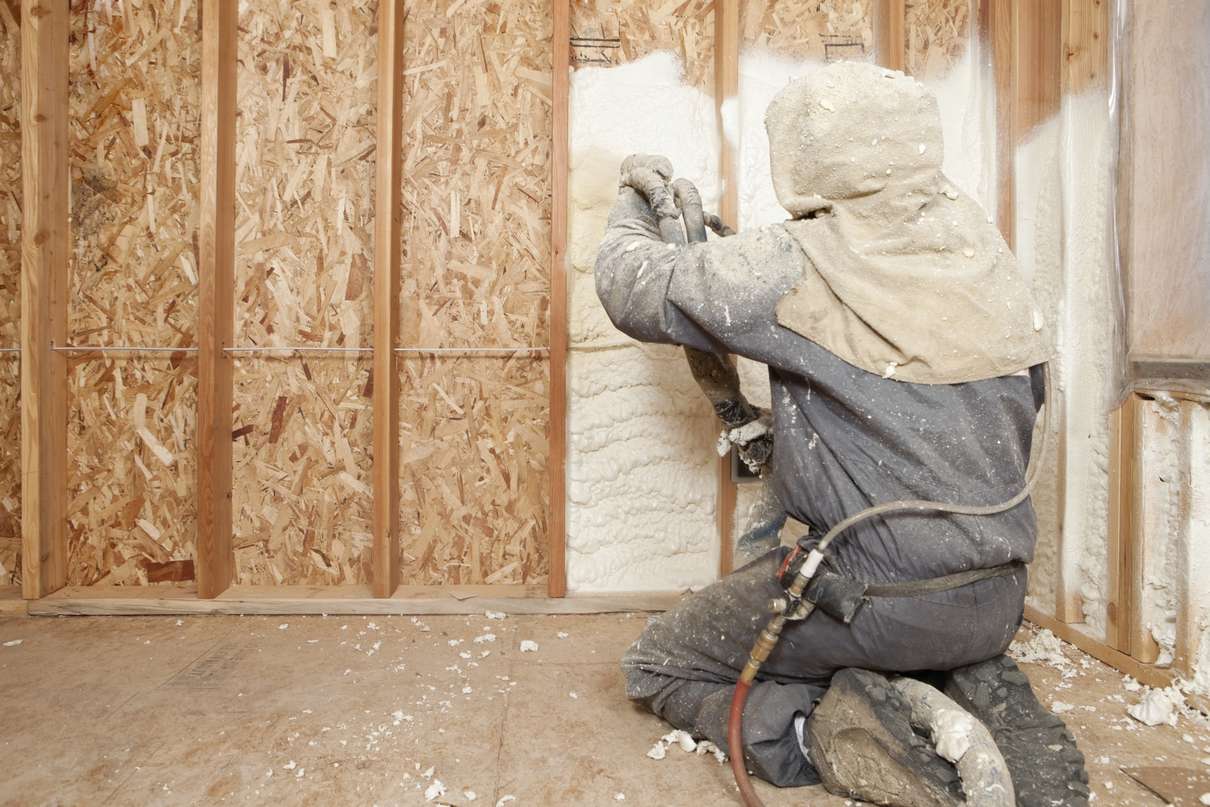





0 thoughts on “How To Start A Home Building Company”